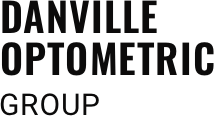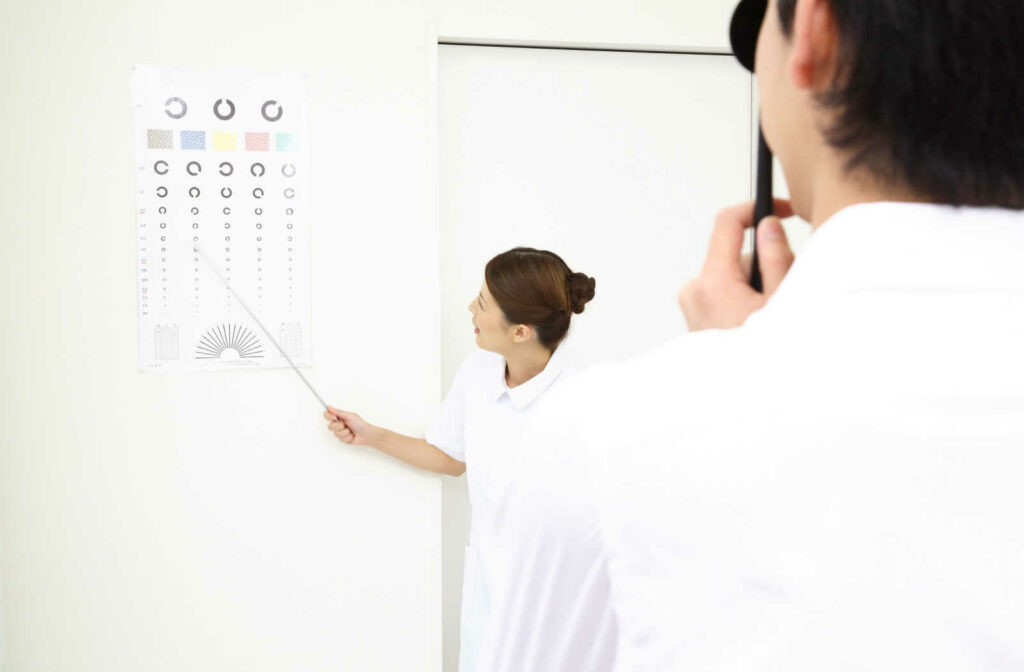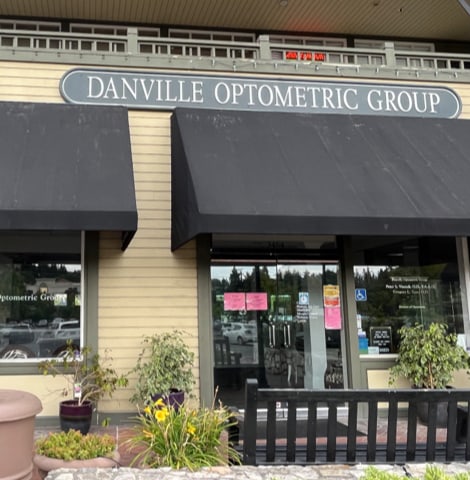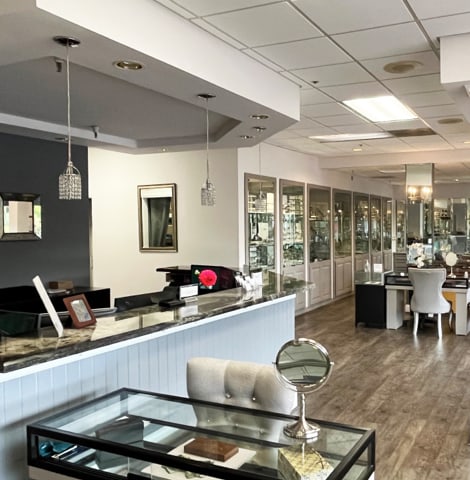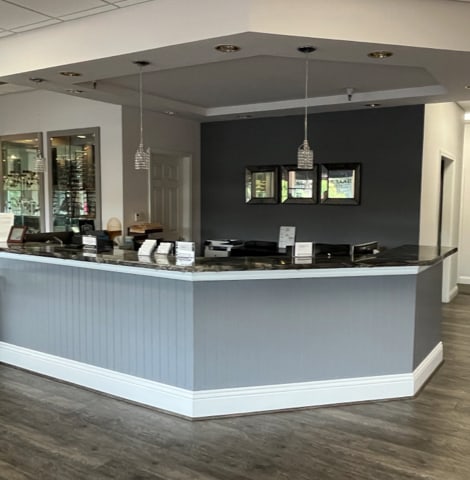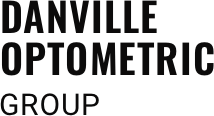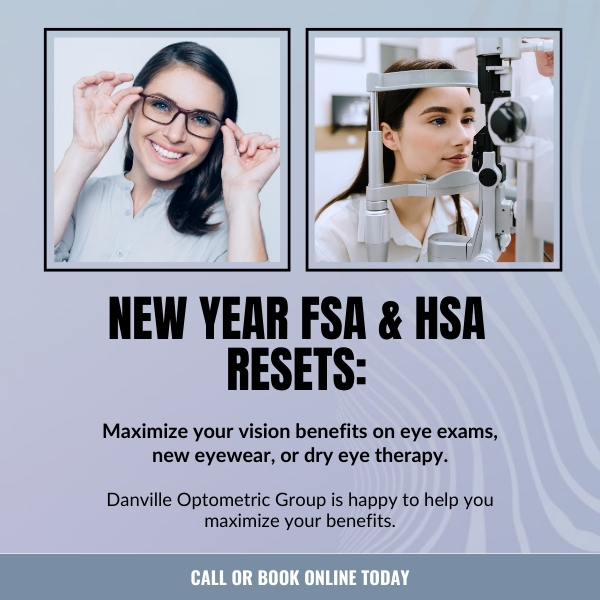Are you curious about the difference between comprehensive eye exams and routine eye exams and which type you may need? We’re here to help by breaking it down for you.
Routine eye exams are basic exams that check your vision and eye health. On the other hand, comprehensive eye exams are a bit more in-depth and designed to evaluate the health of your eyes and help detect early signs of eye diseases.
A Routine Eye Exam
A routine eye exam is a basic eye exam in which the doctor will evaluate your visual acuity, which measures how well you can see at various distances, determine your eyeglasses prescription, and a minor assessment of the eye. They’ll also check for the following refractive errors:
- Nearsightedness (myopia): This is when the shape of the eye prevents light from focusing correctly, leading to blurry distance vision.
- Farsightedness (hyperopia): This is when you can see distant objects clearly, but close-up ones look blurry.
- Astigmatism: When the curvature on the cornea (transparent front surface of the eye) causes blurry vision close up and farther away.
Comprehensive Eye Exams
A comprehensive eye exam includes a general health evaluation and checks for common eye diseases through retinal imaging and dilating of the pupils with diagnostic medications.
These exams are essential when a patient presents with symptoms or when you require a more in-depth assessment after a routine eye check-up.
How Often Should You Have a Comprehensive Eye Exam?
The frequency of comprehensive eye exams depends on your age and eye health. According to the American Academy of Ophthalmology and the American Association of Paediatric Ophthalmology, the recommended frequency for children and adults is as follows:
- Once for a newborn
- Once between ages 6 and 12 months
- Once between ages 12 months and 3 years
- Once year between ages 3 and 5
- Once year from age 6 to 17 if not more often pending visual conditions
- At least every 1 year if not sooner from age 18 to 64
- Annually for 65 and older
The recommended frequency for high-risk patients or patients who wear glasses or contact lenses is annual.

Tests Conducted During a Comprehensive Eye Exam
During a comprehensive eye exam, your eye doctor will discuss your medical and family history and may perform one or more of the following eye tests:
- Visual acuity: Measures your eye’s ability to see clearly and is usually done by reading letters on a chart.
- Visual field: Check your central and peripheral or side vision to see if you have any difficulty seeing in your overall field of vision.
- Color vision: Tests your eye’s ability to distinguish shades of color.
- Binocular vision: Checks how both your eyes work together.
- Refraction test: Check if you have a refractive error, the amount, and the lens power needed to correct it.
- Slit lamp: This test illuminates and magnifies the front of the eye to examine the anterior and posterior parts of the eye, including the cornea, lens, iris, and pupil.
- Eye pressure: Tonometry checks the eye or intraocular eye pressure for signs of glaucoma.
- Retinal exam: Examines the retina (the light-sensitive tissue at the back of the eye) in more detail, including the optic disk and the retinal blood vessel at the back of the eye, and involves dilating the pupil. This test helps to rule out or monitor diabetic retinopathy.
How to Prepare for a Comprehensive Eye Exam
There are no special preparations, but you can do a few things to make your eye exam go smoothly as possible. Here are some tips to help you prepare:
- Bring a list of your current medications with you to the exam.
- Bring your glasses or contacts to the exam so your eye doctor can check your vision with and without them to see if your prescription needs adjusting.
- Bring a pair of sunglasses in the event you have your eyes dilated.
An Essential Part of Healthy Vision
Depending on your eye and vision needs, you may require a routine eye exam to check your vision and eye health or a comprehensive eye exam for a more thorough evaluation of your eye and overall health.
Both types of exams are important. However, a comprehensive eye exam is the only effective way to rule out or confirm a vision problem or eye disease. When you speak to our team at Danville Optometric Group, we can help you determine a frequency based on your age, health, and family history.
Schedule an appointment if you have questions or haven’t had an eye exam in the past year.
